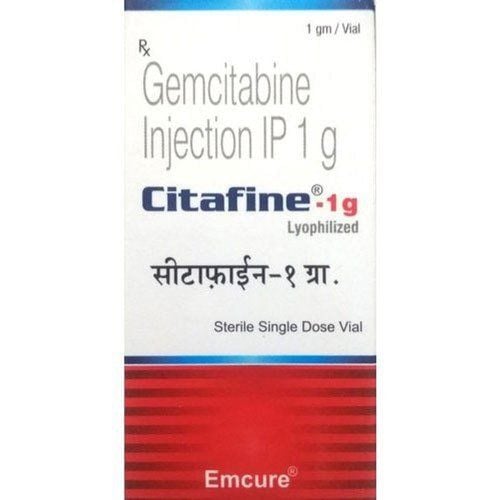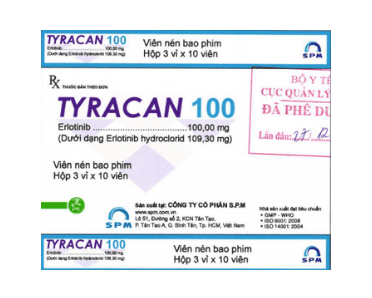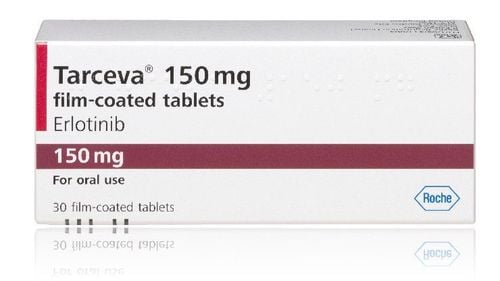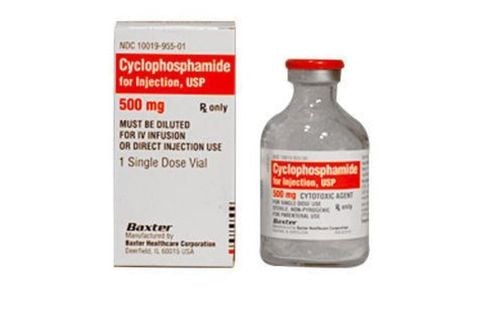This is an automatically translated article.
Abraxane is a drug that inhibits cell division, helping to slow the growth of cancer cells. The drug is commonly used in the treatment of advanced lung, pancreatic, and breast cancers. To learn more about the use of Abraxane, read through the article below.
1. What does Abraxane do?
Abraxane (paclitaxel) is a cancer medicine that interferes with the growth and spread of cancer cells inside the body. This medicine is used when the cancer is in a later stage that cannot be treated with surgery or after other treatments have failed. Abraxane is sometimes used with other cancer medicines.
The late detection of some forms of cancer makes it difficult to treat, when a drug called Abraxane has been approved and included in the cancer treatment program in some patients, helping to prolong life for them.
2. Usage and dosage of Abraxane
2.1. How to take Abraxane is given by intravenous infusion. The patient needs to have the medical staff set up the infusion line and help you, monitor during the infusion. During the infusion process, if you see any abnormal symptoms, you should immediately notify the medical staff. You may be given other medicines to help prevent an allergic reaction.
2.2. Dosage The usual adult dose for breast cancer patients: The dose is 260 mg/m2 intravenously over 30 minutes every 3 weeks. Prior therapy should be used including anthracycline unless clinically contraindicated. Usual Adult Dose for Non-Small Cell Lung Cancer: 100 mg/m2 intravenously over 30 minutes on days 1, 8, and 15 of each 21-day cycle; Usual Adult Dose for Pancreatic Cancer: The dose is 125 mg/m2 intravenously over 30 to 40 minutes on Days 1, 8 and 15 of each 28-day cycle;
3. Possible side effects when taking Abraxane
Side effects of Abraxane that may occur during treatment include:
Severe allergic reactions: Patients should get immediate medical attention if they have signs of an allergic reaction to Abraxane including: rash, trouble breathing, facial swelling, throat swelling, or severe skin reaction. Signs vary fever, sore throat, burning sensation in the eyes, skin pain, red or purple skin rash with blistering and peeling. Tell your doctor if you notice the following side effects: Numbness, tingling, pain or weakness in the hands or feet; chest pain that comes on suddenly or is uncomfortable, fast heartbeat; low red blood cells (anemia) causes pale skin, unusual tiredness, feeling light-headed or short of breath, and cold hands and feet. Symptoms of dehydration such as headache, muscle aches, thirst, dry mouth, hot and dry skin,... Sepsis with high fever, chills, mouth and throat ulcers, tachycardia, breathing farm. Common side effects include: Fever, chills, other signs of infection; bruising, bleeding, fatigue, hair loss, rash, feeling nauseous, vomiting... Cancer treatments with Abraxane may be delayed or may be stopped permanently if you have certain types of cancer. certain side effects.
4. Notes when using Abraxane
Before taking this medicine, patients should note: You should not be treated with Abraxane if you are allergic to the active ingredient paclitaxel, have a low white blood cell count, have severe liver disease. To make sure it is safe to take the drug, it may be necessary to test before taking the drug for white blood cell counts, liver disease, kidney disease. Ask your history if you have had an allergic reaction to medicines such as paclitaxel (such as cabazitaxel or docetaxel). Abraxane can harm an unborn baby, causing birth defects if the mother or father uses this medicine. Therefore, do not use Abraxane to treat an illness if you are pregnant. Patients should have a negative pregnancy test before starting this treatment. During treatment you should use effective birth control to prevent pregnancy while you are using this medicine and for at least 6 months after your last dose. If you're a man, use effective birth control if your partner could get pregnant. Continue using birth control for at least 3 months after your last dose of the medicine. Tell your doctor right away if pregnancy occurs while the mother or father is using Abraxane. This medicine may also affect fertility in both men and women. However, despite the effects, there is still a risk of pregnancy, so it is important to use birth control to prevent pregnancy because Abraxane can harm an unborn baby. Do not breast-feed while you are taking this medicine, and for at least 2 weeks after the last dose. Abraxane is made from donor plasma and the medicine may contain viruses or other infectious agents. Donated plasma is tested and processed to reduce the risk of infection, but there is still a small chance it can transmit disease. Ask your doctor about any possible risks to you that can be prevented. Paclitaxel can be harmful if it gets in your eyes, mouth, nose, or on your skin. If skin contact occurs, wash area with soap and water or rinse eyes thoroughly with plain water. Paclitaxel may also pass into body secretions (urine, feces, vomit). For at least 48 hours after receiving a dose, avoid contact with body secretions with hands or other surfaces. Caregivers should wear rubber gloves while cleaning a patient's bodily secretions, handling contaminated trash. Wash hands before and after removing gloves. Other drugs may also interact with paclitaxel, including prescription and over-the-counter medicines, vitamins, and herbal products. You need to tell your doctor about all of your current medicines and any medicines you start or stop using. Abraxane can weaken the immune system, which needs to be avoided by pathogens to avoid infection during treatment. Because, this makes your condition worse. In summary, the drug Abraxane is used in the treatment of terminal cancer. Ask your doctor what you want to know about the drug and the risks of taking it.
Please dial HOTLINE for more information or register for an appointment HERE. Download MyVinmec app to make appointments faster and to manage your bookings easily.













